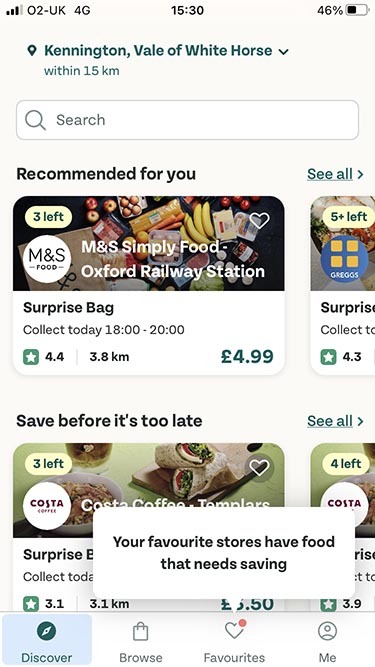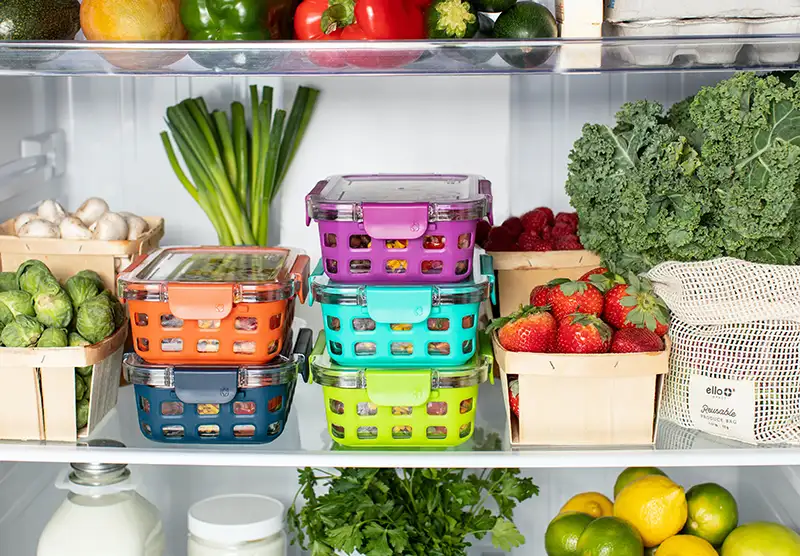Last Updated: 08 January 2024
Every year, mountains of perfectly good food are wasted in the UK, destined for landfills or recycling instead of hungry mouths. But this doesn't have to be the case!

Even though food waste recycling has huge benefits for the environment, wouldn't it be better not to waste food at all? At Severn Trent Green Power we encourage everyone to be aware of their food footprint, so we're making people aware of the options when it comes to the redistribution of still-edible food.
And a wave of innovative initiatives is rising to the challenge, transforming food waste from a problem into a delicious solution. Buckle up for brilliant ways to redistribute this edible bounty and save food from going to waste.
Too Good To Go: Tired of supermarket specials ending up untouched? This app connects them with you! Restaurants, cafes and bakeries can list unsold goodies at a fraction of the price, creating "magic bags" containing surprise ingredients that would otherwise cost three or four times what you pay via the app. Sign up and provide your location to see what's available near you. You save money, they avoid waste, everyone wins - and the surprise element adds a playful twist to your dinner plans.

Olio: Got leftover curry lurking in the fridge? Don't chuck it! Olio lets you share unwanted food with neighbours and local shops, building a "sharing economy" within your community. Imagine finding that forgotten jar of olives or a bag of apples someone else couldn't finish - a community bounty hunt at your fingertips!
FareShare: This powerhouse charity tackles food poverty by rescuing surplus from farms, manufacturers and supermarkets. They cook this bounty into nutritious meals for vulnerable communities, feeding over 250,000 people a week. Supporting FareShare through volunteering or donations strengthens the critical safety net against food insecurity.
Community Fridge Network: These grassroots gems are popping up across the country, offering free, fresh food to anyone who needs it. Volunteers collect surplus from local businesses and individuals, creating welcoming spaces where people can share stories and a good meal, fostering a sense of connection and reducing local food waste.

FoodCloud: This platform acts as a digital matchmaker, connecting businesses with surplus food to charities and community groups who need it. Their clever tech streamlines the donation process, ensuring nutritious meals reach those who need it most, all while reducing administrative burdens for both sides.
Neighbourly: This social platform harnesses the power of local communities to fight food waste. Users can list unwanted food items to be picked up by neighbours, ensuring perfectly edible goods find new homes instead of the bin. Sharing surplus bread for morning toast or extra fruit for a family smoothie becomes a simple act of neighbourly kindness.
Karma: This app works in very similar fashion to Too Good to Go, but instead of being a surprise, you know exactly what food you're saving when you buy it. Karma is still expanding so doesn't have the same UK coverage that TGTG currently has but sign up now to be notified when there's food to be saved near you.
Nosh / No Waste: These two (unrelated, but similar) apps do a great job of helping you keep track of the food you have in your home, along with its usable shelf life. If you struggle to remember what's nearing its use-by date and what to eat first, one of these apps could be for you. They even have recipe ideas for the ingredients you're looking to use up.
These are just a few of the inspiring initiatives tackling food waste in the UK. From apps to charities to community fridges, the options are diverse and impactful. So, next time you contemplate binning those leftovers, remember - a delicious, sustainable solution could be just a tap or a doorstep away. Join the movement, redistribute, and create a future where good food still feeds, rather than going straight in the bin.
Once food can no longer be consumed, that's when our powerful food waste recycling technology comes into play. So long as the food is brought to our facilities, we can prevent the harm caused by food being sent to landfill and generating greenhouses gases such as methane.
Find out more about our anaerobic digestion process.